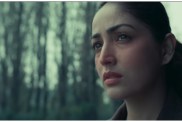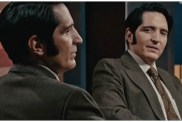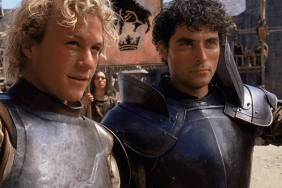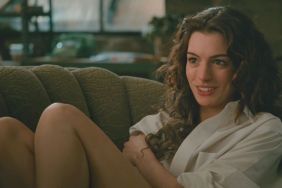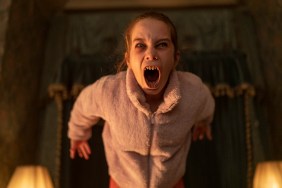The novel and film tell the life story of Jean-Baptiste Grenouille, played by newcomer Ben Whishaw, a French orphan born into harsh circumstances, who has an impeccable sense of smell that gets him interested in creating the perfect perfume scent. Unfortunately, that involves finding beautiful, pleasant-smelling women and capturing their essence before they die from the process. Yes, it’s the story of a serial killer who plagued 18th Century France, and it’s a truly original concept in the sense of the setting and M.O. of the main character, and it allowed Tom Tykwer to pull out all of his visual stops to create an unforgettable cinematic experience.
It’s quite a comeback for the director who ComingSoon.net got to speak to during a brief stopover in New York City.
ComingSoon.net: This is a well-known book in Germany
Tom Tykwer: In all of Europe. Actually, here it’s also got 2 million copies sold here only, 15 million altogether I think.
CS: How did you come onto this project?
Tykwer: I was asked to do it; [the producers] offered to me. I reread the novel, totally loved it. I read it when it came out twenty years ago when I was pretty young and didn’t even know that I’d make it as a filmmaker. Then reading it again showed me that there’s a lot of stuff in there that I could really connect with on a deeper level than I really knew than what I have a particular knowledge about. There’s some kind of strange “siblinghood” or kinship between this character and my previous characters. I really felt like there’s someone really struggling to find attention and love, breaking quite many rules for that. In this case of course, more than in any of my other movies. I was really hooked by this whole idea of making a film about someone, who we deeply root for and who then goes away, we find really difficult to follow, but we nevertheless do follow. We don’t let go of him. We kind of stay with him all the way through, even though he becomes a murderer, because we’re so curious about what he’s after.
CS: Was there already a script in play that you worked on and developed or you started from scratch?
Tykwer: I joined a writing team that was Andrew Birkin and Bernd Eichinger, they had done a draft, but we went through another 20, so really, we spent more or less 2 years of continuous writing.
CS: I wasn’t sure about this, but is the author, Patrick Süskind, still alive and was he involved with this at all?
Tykwer: No, he’s the German J.D. Salinger. Many people don’t believe he exists, but I do know he does because I met him, one of the rare occasions that he was available. We had a nice meeting and he was wishing me very much luck, and also said, “Please leave me alone with this film because I’ve already spent half my life with it.”

Tykwer: I was already writing on it, yes. I was sitting there with the writers together, and he was brought to me to be introduced. That was quite an important meeting for me, but at the same time, without any consequence, except the consequence that he left mewhich was also very nicethat we could do the film the way we wanted to do the film.
CS: What was the biggest challenge in terms of adapting his book?
Tykwer: The main character and the ambiguity of the character, and the fact that in literature, a different set of rules apply a bit to how you can treat the protagonist than in cinema, because you’re watching the guy all the time, you need to bond with other tricks and terms to get the audience really involved. Yeah, we worked hard on that, specifically in the script, and of course, then it was up to casting to find the right guy, that could make people feel closer to him and never let go of him.
CS: How did you end up finding Ben Whishaw to play Grenouille? He’s done a few things but nothing on this scale, I’m sure.
Tykwer: No, that was a lucky thing. I was sent to see this play at the Old Vic Theatre in London, which was “Hamlet,” and he was a 23-year-old doing Hamlet on a big traditional stage. It was for me, the most amazingly different and extremely modern approach that he had towards the character that I found so amazing. I found it amazing that he was making Hamlet seem like a contemporary character. That was so much also the instinct that I was having towards our film. I wanted our film to be a period picture shot in a way that it feels so contemporary and modern, that you get the feeling as if you were wandering around in 18th Century with a camera, cinema verité style, and being able to shoot anywhere we want, then also throwing out all the backgrounds in a way just for the shot. Not showing off with it. Not doing this whole presentational mode that so many period pictures have, where you feel like they’re forced to become slower in the narration just for the sake of showing how much effort they’ve put into reconstructing the period, which nobody cares for.
CS: Speaking of narration, that was John Hurt doing the voice-over who also did voice-over for Lars Von Trier’s last two movies. Were they an influence on you hiring him?
Tykwer: No influence at all. I just think he was by far the best choice for narrating this, because he gives it a feeling of safety. He’s like a safety net that he puts under you, and he gives you a certain amount of security, but he can also relate to the humor and the more ironic parts of the story. At the same time, he’s only framing the film with the narration and he gives it this whole feeling of being protected because there’s this voice, and then you are not, because the movie goes so far more into unexpected territory and dark zones, and the narrator vanishes, so you’re left alone with this darkly romantic nightmare.
CS: This is an interesting production, because it’s a German book, you’re a German director, but it’s set in France with a lot of British actors. Did you actually shoot in France?
Tykwer: Yes, we shot in France, Spain, exteriors, also on location on a stage in Munich. Strangely enough, everyone accepts that they speak English, because it’s just the international or common language of film.
CS: Süskind’s novel was originally written in German, so would you know why he decided to set the story in France?
Tykwer: Oh, he’s very much a Francophile, and he’s been living there for awhile, in Paris, and he’s been living in Grass for a long time for private reasons, but also he started researching there for the book. So he’s quite connected to the country. I am, too. I’m very open in France. I just don’t speak French well enough to even have the opportunity to shoot something in French.

Tykwer: (laughs) I don’t know. Yeah, this whole idea of Grenouille being sort of like a connoisseur or gourmet of smell whereas Lecter is a gourmet of a specific kind of food, but there’s this idea of being a specialist in something and being dangerous because of that, which of course gives some similarity to the characters, but you should never forget that Lecter is a character who kills also partly for pleasure, whereas Grenouille doesn’t kill for pleasure at all. He just doesn’t know how to do better or how to make it simpler. He’s a collector of beauty, he collects sculptural elements in a way to compose the ultimate beautiful sculpture, which is the scent that he’s creating. He doesn’t have at all the perspective of himself to be a murdered, although objectively of course, he is.
CS: This was a huge production, and one of the most memorable things is the crowd scene at the end. The first thing I thought of was that photographer famous for doing huge group nude shots.
Tykwer: Yeah, we saw his pictures, and he’s amazing, and of course, funnily enough because we shot that sequence in Barcelona, his most successful project happened there, more people than anywhere else showed up and were ready to undress and do the picture. It’s really funny because that was my experience, too. We needed time to rehearse with those people, and we needed time to get them into the mood and set-up their perspective on the scene, but then they went for it, and they didn’t want to stop. They kept going and going and going.
CS: The success of the movie in Germany and Europe is amazing. You said the book sold a few million copies, here, but do you think this sort of movie can translate well here? Period pieces tend to have a bit of a spotty history with audiences here.
Tykwer: Well, I have great experiences with American audiences, they’ve always been very curious at least about my stuff, I think because of the mix of traditional approach that you can feel a little safe in, and then of course, there’s so much to discover in the movie, as much as the book was I hope, that’s unlike any other film. I’m still so much an audience myself that I don’t want to deliver a movie that I myself as an audience would find a repetition of something I’ve seen already. I want to see new stuff, because I know what’s out there. I know what people are waiting for, and I know that the Americans–once a film is exciting to watch–are quite open-minded about making it a success, especially if it’s also interesting.
CS: Before we wrap this up, what is your obsession with that bright red hair?
Tykwer: No, no, no. That’s a sheer coincidence. I totally distance myself from any
because it’s in the book. It’s coincidence, as much as we believe in coincidence.
Perfume – The Story of a Murderer opens in select cities on Wednesday, December 27.

